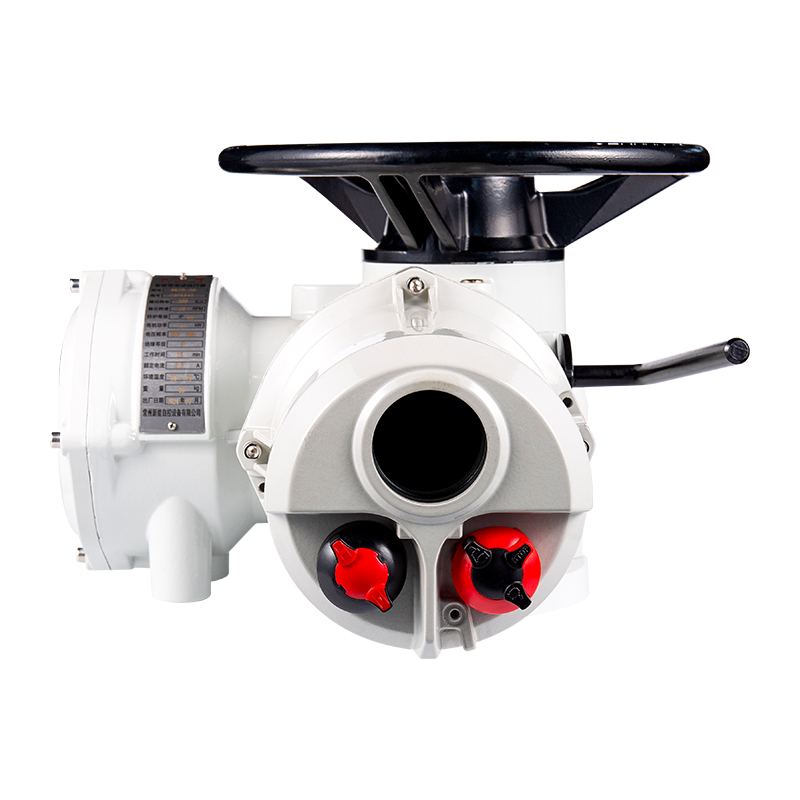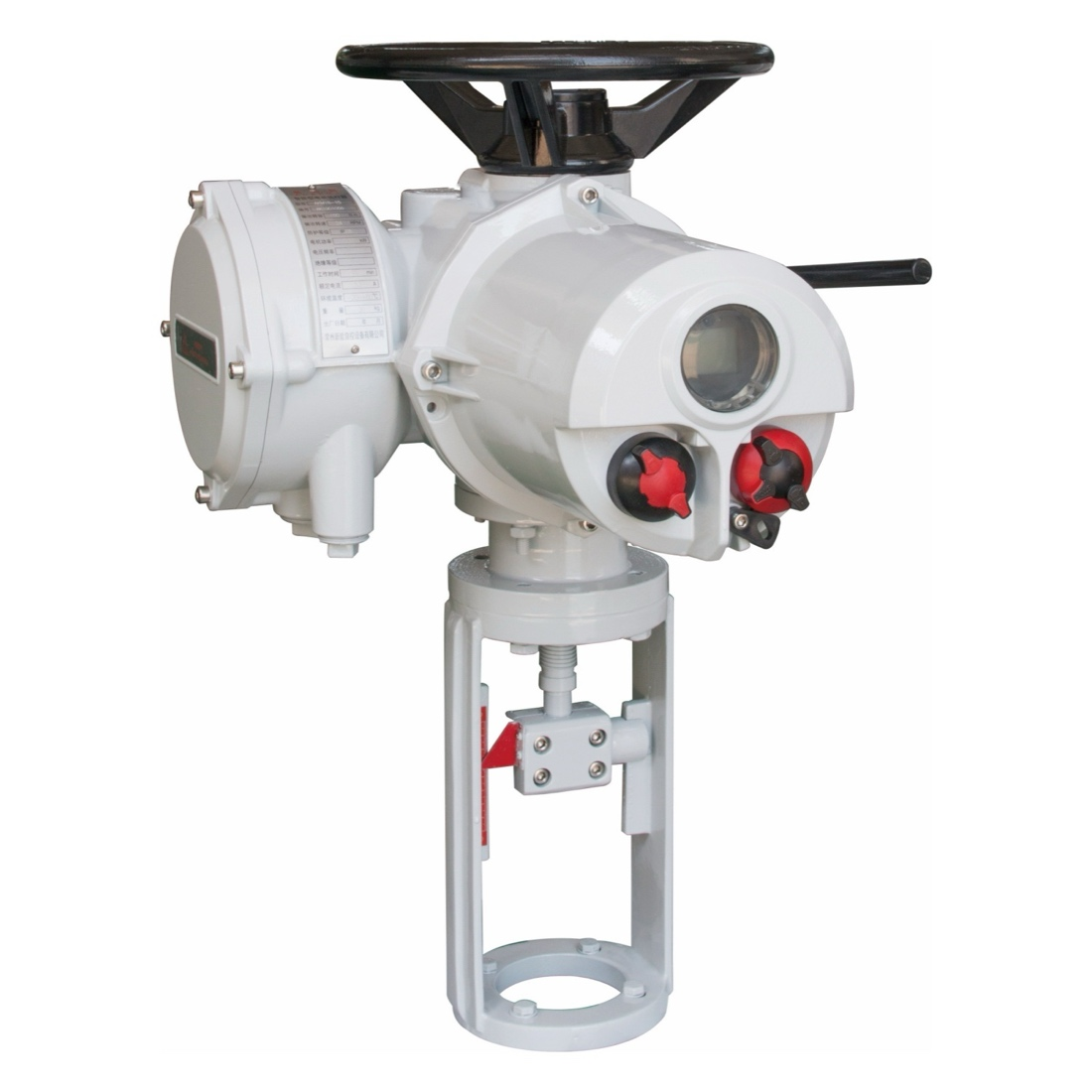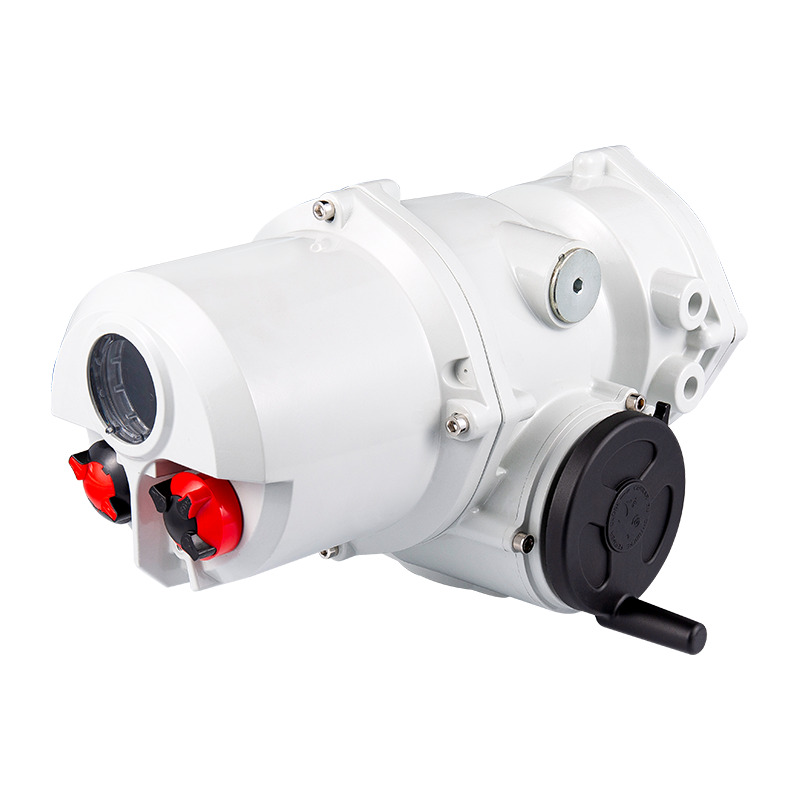0086 15335008985
Cat:Quarter Turn Electric Actuator
The AUKEMA partially rotating intelligent electric actuator has two control types: AKQ intelligent switch type and AKQM ...
See Details
In the realm of industrial automation, electric actuators have emerged as crucial components with significant impact and a wide range of applications. This article aims to explore the importance, features, and benefits of electric actuators in detail.
I. Introduction
Electric actuators are devices that convert electrical energy into mechanical motion. They are used to control the operation of valves, dampers, and other mechanical equipment in industrial processes. With the development of technology, electric actuators have become more and more intelligent and precise, playing an indispensable role in improving production efficiency and quality.
II. Working Principle
Electric actuators typically consist of a motor, a gearbox, a control unit, and a feedback mechanism. The motor provides the power source, and the gearbox is used to adjust the speed and torque according to the needs. The control unit receives signals from the control system and controls the operation of the motor. The feedback mechanism sends information about the position and status of the actuator back to the control system to ensure accurate control.
III. Features and Advantages
A. High Precision
Electric actuators can achieve precise control of position and speed. They are able to accurately adjust the opening and closing of valves or the angle of dampers, which is crucial for processes that require accurate flow control or pressure regulation. This precision helps to optimize the performance of the industrial system and reduce errors and waste.
B. Quick Response
They have a fast response time, which allows for rapid adjustments to changes in the process. This is especially important in applications where timely responses are necessary to maintain system stability or to adapt to sudden fluctuations in production conditions. For example, in a chemical processing plant, quick adjustments of valve positions can prevent overpressure or underflow situations.
C. Easy to Control and Program
Electric actuators can be easily integrated with various control systems, such as PLC (Programmable Logic Controller) or DCS (Distributed Control System). They can be programmed to perform specific tasks and sequences according to the requirements of the production process. This flexibility makes it possible to customize the operation of the actuators to meet the unique needs of different industrial applications.
D. Reliable and Durable
With proper design and maintenance, electric actuators are highly reliable and have a long service life. They are less affected by environmental factors such as temperature, humidity, and vibration compared to some other types of actuators. This reliability reduces downtime and maintenance costs, ensuring continuous and stable operation of the industrial production line.
E. Energy Efficient
Modern electric actuators are designed to be energy-efficient. They use advanced motor technologies and control algorithms to optimize power consumption. This not only helps to reduce operating costs but also meets the increasing demand for energy conservation and environmental protection in the industrial sector.
IV. Applications
Electric actuators are widely used in various industries, including:
A. Oil and Gas
In the oil and gas industry, they are used to control the valves in pipelines, wellheads, and processing facilities. They ensure the safe and efficient transportation and processing of oil and gas, and can also be used in emergency shutdown systems to prevent accidents.
B. Water Treatment
In water treatment plants, electric actuators are used to control the flow and pressure of water in filtration systems, pumps, and valves. They help to maintain the quality of the treated water and ensure the stable operation of the water treatment process.
C. Power Generation
In power plants, electric actuators are used to control the valves in the steam and water systems, as well as the dampers in the air intake and exhaust systems. They play a crucial role in optimizing the efficiency of power generation and ensuring the safety and reliability of the power plant.
D. Chemical Industry
In the chemical industry, electric actuators are used to control the valves and reactors in chemical production processes. They can accurately control the flow of chemicals, the temperature and pressure of the reaction, and ensure the quality and safety of the chemical products.
V. Conclusion
In conclusion, electric actuators have become an essential part of industrial automation. Their high precision, quick response, easy control, reliability, durability, and energy efficiency make them ideal for a wide range of applications. As technology continues to advance, electric actuators are expected to become even more intelligent and efficient, further promoting the development of industrial automation and improving the competitiveness of industries. Understanding and properly using electric actuators can help enterprises improve production efficiency, reduce costs, and ensure the quality and safety of production, thus achieving sustainable development in the fierce market competition.

